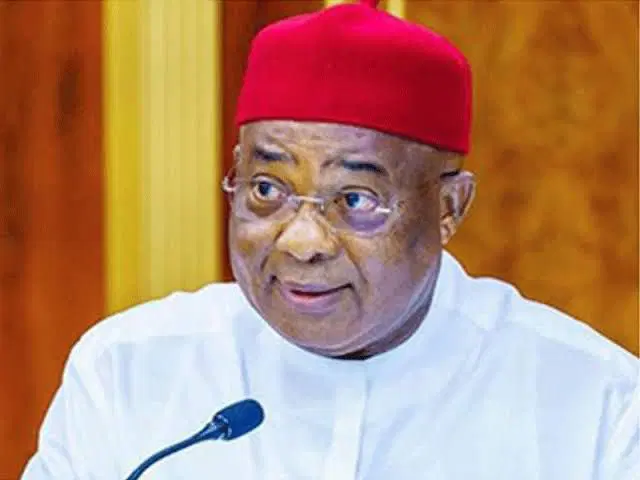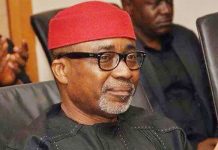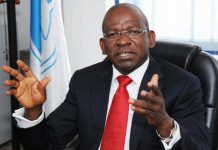Sen. Hope Uzodimma, the governor of Imo State, has called on the National Assembly to address what he called years of “imbalance and exclusion” against the South-East.
Speaking at the South-East Zonal Public Hearing on the 1999 Constitution Review for Imo and Abia States in Owerri, Uzodimma listed the region’s main demands, the most important of which is the establishment of a minimum of two new states for the zone.
“The only region with less than five states is still the South-East. “There are six or more in every other zone,” Uzodimma stated.
Due to this disparity, there is underrepresentation in important national institutions, such as the Federal Executive Council and the National Assembly. It has limited our inclusiveness and diminished our voice.
With its potential for oil production, Uzodimma suggested Anim State as one of the new states to be established.
Upon its inception, this state will be able to produce oil. According to him, this makes it financially viable and has a strong enough revenue base to support itself.
He asserts that in order to accommodate the region’s expanding population and strategic economic potential, local government districts should be reorganized together with the establishment of new states.
Thinking back on the history of the area, Uzodimma noted that before states like Abia and Ebonyi formed, Owerri was the capital of the former Eastern Region.
Read Also: Meta Faults AI Translation That Misstated Karnataka CM’s Passing, Issues Apology
We may soon have additional state capitals, including as Orlu, Aba, Nsukka, and others, thanks to our combined efforts. With God’s help, I think this is the South-East’s collective prayer, and it will be answered,” he continued.
Rethinking Indigenous Peoples
On the contentious subject of indigeneship, the governor made one of his most audacious propositions. He demanded a legal reinterpretation of the term of “Indigenous,” proposing that the status be granted by birth or by 10 years or more of residency.
“We shouldn’t appear to be conversing incoherently. He contended, “We must legally define indigeneship by birth or by long-term residency, say ten years.” “An individual should be considered a legitimate native of a state if they were born there or have resided there for more than ten years.”
He used the famous instance of Mallam Umaru Altine, a Fulani man who served as Enugu’s mayor in 1952, to demonstrate how Nigeria used to embrace this kind of inclusivity. “If only the constitution can catch up with our history, that tells us something profound about our potential for unity.”
A Request for a Rotational Presidency
In his comments on the national leadership system, Uzodimma advocated for a constitutional clause that would cycle the President not just between the North and South but also among the six geopolitical zones.
“National stability, not tokenism,” he declared. “Nigerians’ fear of dominance will be eliminated and their sense of inclusion in the nation will be strengthened if they are aware that the presidency will alternate between the six zones.”
Noting that zoning has already stabilized federal appointments, he thinks extending it to the presidency may promote harmony and trust amongst people.
The governor didn’t stop there. He demanded the creation of state police, calling the existing, centralized system “overstretched and disconnected from local realities.”
He declared, “As the Chairman of the Progressive Governors’ Forum, I can certify that we support the decentralization of the police for increased effectiveness and responsiveness.” “It is out of date and unfounded to fear that governors will abuse such a force.”
Uzodimma emphasized that grassroots security issues cannot wait for outmoded anxieties. “When our citizens are demanding safety and order, we cannot let the past paralyze the future.”
As he concluded his speech, the governor of Imo urged the Constitution Review Committee to base their work on justice, equity, and togetherness.
“Rather than being a weakness, our diversity is a strength.” However, Uzodimma stated that equity and the law must be used to harness that strength.
“Not just our shared borders, but our shared values must be reflected in our Constitution.”
He said, “May you be guided by the hope of millions who seek a Constitution that truly belongs to them, one that ensures fairness, equity, and a level playing field for all,” and he encouraged the committee to hear the opinions of regular Nigerians nationwide.
Join Television Nigerian Whatsapp Now
Join Television Nigerian Facebook Now
Join Television Nigerian Twitter Now
Join Television Nigerian YouTUbe Now





